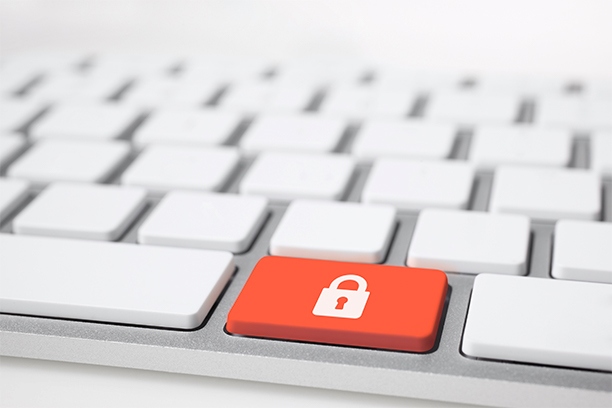
Is Your Data Safe When You Work From Home? 5 Tips to Consider
We’re in a new world of work.
Suddenly, our homes—our familiar homes–are our unrecognizable workplaces.
This new arrangement opens up security concerns we’ve never thought about, from social interaction and management to information security.
Securing corporate information and data itself is a huge job. So big, in fact, that an entire industry exists to keep hackers from accessing information. Corporate hacking takes multiple forms, whether that is simple phishing, in which a hacker may try to get users to hand over their login information willingly, or brute-force assaults in which millions of bots attack a network looking for vulnerabilities.
As many of us now face weeks or months of working from home, here are five things each of us can do to make sure that important information remains safe.
1. Secure Your Device
Step one is basic: Make sure that each device itself, your laptop, phone, or tablet, is secure and password-protected, accessible only by you. If you have a work laptop, use it only for work, not for personal browsing, online shopping, or gaming. More importantly, keep it out of the hands of your kids, as they can be indiscriminate about where they browse and, depending on their age, might inadvertently click on a link that could expose your computer to hackers.
Make sure that your laptop is protected through a login procedure that has a strong password, which only you know. Some employers may even give you a fob that has a different daily password sign-in or that needs to be plugged in or held up to your screen to get into your company’s system.
Having a separate office space at home is a benefit not only for your own productivity, but also for security purposes. Keeping your devices and important business and personal information in a locked, dedicated space will help give you peace of mind. Most people who work from home will tell you that it’s much easier to have a separate workspace with a door that closes, so you effectively “go to work” and then “return home” as a way to keep your life separate. If a dedicated office is not possible for you, make sure you have a defined workspace somewhere in the house, whether it’s a small corner desk, the dining room table, or a nook in your kitchen. Still, tuck your devices away when work is done.
2. Use Internet Security Software
Another important step is to make sure you have Internet security software installed on your laptops, tablets and other devices. Make sure this software is up to date.
Seemingly innocent web sites can even be a problem. You might think you’re clicking on a map or a link in a news article to give you more information, but it may actually be compromising your browser and collecting information. Security software can protect you from sites that try to compromise your personal information.
Stay vigilant. Keep your computer’s operating system up to date, and download any manufacturer-issued security patches and updates.
3. Pay Attention to your Passwords
Remembering different passwords for your many accounts can be a challenge, and creating unique, hard to hack passwords is difficult. Your best bet is to get a password manager that can handle all of them. That manager should also have two-factor authentication to ensure that you are the only one able to access the information. Using password managers gives you strong passwords that are extremely difficult to hack, greatly reducing the risk of having a password compromised by someone else.
4. Secure your Internet Connection
With devices an passwords secure, look to secure the flow of data itself. To begin, your router should have all its software up to date. If you are using the router provided with your Internet Service provider, those updates should happen automatically.
When using Wi-Fi, make sure you are using the latest security method such as WPA2 encryption and have a complex password. If you are using your provider’s router, a complex password is pre-assigned and should be retained to simplify future troubleshooting. If you are providing your own router, make sure the password is complex.
The most secure option is to directly connect your computer to your router with an ethernet cable which also has an added benefit of being more consistent and may be faster.
5. Use your Company’s VPN
Most likely, your organization has a virtual private network (VPN), which creates a private network between your computer and the corporate servers. This effectively opens an encrypted tunnel between your computer and the corporate servers, so you can access information from home without exposing it to the broader internet. If you aren’t familiar with logging into the VPN, ask your company IT team for assistance to be sure you know how to log on safely from your home.
Though there are many moving parts to information security, taking a few simple steps should empower you to take control of your work from home life and ensure your information is as secure as it can be.


Join the conversation